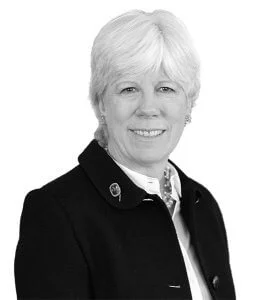Married with children from a previous relationship – how can I divide my assets fairly between them when I die?
1 Jan 2022 | Jan Atkinson
Table of Contents
There are several ways of doing this. If sufficient assets are available apart from the family home, dividing those between the surviving spouse and children from a previous marriage may be possible. But if, as is often the case, most of the assets are tied up in the family home and/or the spouse needs most of the other assets to live on, a life interest in some or all of the assets can be given to the spouse with the children ultimately receiving the capital on the death of the spouse.
A life interest would give the surviving spouse a right to income, such as interest on investments and a right to occupy the property. That would mean the children have to wait for the surviving spouse’s death to receive their inheritance. Still, at least the underlying capital is ultimately protected for them and cannot be diverted elsewhere post-death. Alternatively, the will could include a discretionary trust which creates flexibility and enables the trustees, who should be carefully chosen, to take account of the needs and circumstances of the named beneficiaries at the date of death in deciding what each beneficiary should receive.
Division of assets – the impact on your tax
Each option has tax consequences, so these should be carefully considered before proceeding. An English-domiciled surviving spouse is a fully exempt beneficiary, so no Inheritance Tax (IHT) is payable on assets passing to a spouse, whereas if non-exempt beneficiaries such as the children receive more than the tax-free allowances of £325K plus the £175K residence nil rate band, IHT at 40% would be payable on the excess.
The ‘tax tail should not necessarily wag the dog’, but the tax effects will be important in deciding how to divide an estate between exempt and non-exempt beneficiaries. This is an area of potential conflict, so appointing neutral executors and trustees to administer the estate and ongoing trust would make sense. Neutral lay executors may not be easy to find, so a professional executor as a solicitor may be a useful option.
Share this article
Contact
Contact us today
For a free initial conversation call 020 7485 8811
Email us Send us an email and we’ll get back to you
Related InsightsVIEW ALL
- 22.4.2024
5 Things You Should Never Put in a Will
When it comes to writing a will, you want to make sure that your wishes are known and that the...
Read more - 22.3.2024
Forged Wills
If the contents of a will comes as a surprise, then one of the things to consider is whether the...
Read more - 31.8.2023
Can Someone With Dementia Make A Will or...
It’s a sad reality in an ageing population that more people than ever suffer from dementia in the UK....
Read more - 19.7.2022
Beware of appointing your children as executors
Where tensions exist between family members, making your children the executors of your will can cause huge problems with probate,...
Read more - 1.1.2022
Married with children from a previous relationship – how...
There are several ways of doing this. If sufficient assets are available apart from the family home, dividing those between...
Read more - 25.9.2020
Making a Will by video link
The Government has recently announced plans to allow for the witnessing of Wills and Codicils by video conferencing. This is...
Read more - 10.6.2020
Leaving money to charity in your will
Why leave money to charity in your Will? Leaving money to charity in your will is a significant source of...
Read more - 26.3.2020
Property up to £1m can be inheritance tax...
Changes to inheritance tax allowances mean married couples can leave property worth £1 million tax-free from 6 April. Modest houses in parts...
Read more - 19.12.2019
Hampstead solicitor becomes notary public
Hampstead solicitor Elspeth Neilson of Osbornes Law has qualified as a notary public (a notary), meaning she can now certify...
Read more - 22.10.2019
Property abroad? Beware of forced heirship rules
Whether it’s a holiday home, an investment property or a place you want to retire to, if you own...
Read more - 9.8.2019
How to Protect Yourself From Will Scams
Much has been written about protecting older or vulnerable people from online scams – according to Age UK, an older person...
Read more - 31.7.2019
Residence Nil Rate Band
What is the Residence Nil Rate Band? The Residence Nil Rate Band is an additional nil rate band. It can...
Read more - 26.7.2019
What happens to your digital assets on death?
This question has become increasingly prominent with the advancement of technology and the increase in social media platforms. Digital assets...
Read more - 3.7.2019
Assets abroad? Why you may need more than...
As more of us become internationally mobile, it’s increasingly common to own assets abroad. Yet lawyers say many people...
Read more - 31.5.2019
The Problem with DIY Wills
The Law Gazette has recently reported that ‘DIY Wills’ are being blamed for the rise in probate disputes, and this...
Read more - 25.3.2019
Cross Border Issues – Wills and Succession
An increasing number of individuals have connections with more than one jurisdiction. Conflicting rules can significantly affect their estate planning...
Read more - 25.3.2019
Intestacy Rules
What Happens When Someone Dies Without a Will? It is estimated that between half and two-thirds of the adult population...
Read more - 13.11.2017
Mutual Wills
The High Court’s decision in the recent case of Legg and Burton v Burton [2017] has highlighted the issues surrounding...
Read more

















